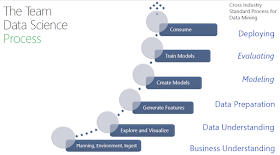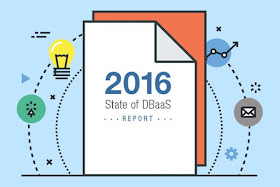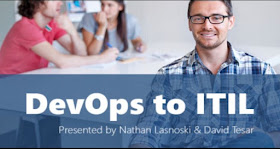There is a change coming to the database administration
role. Change brings uncertainty but it also brings opportunity. The database administration role has not
really changed for a decade and although change is now a foot it will be a
several years before the full force of the cloud is fully embedded in the
database world. These are exciting times
for database administrators.
The new offerings from Microsoft span the entire breath from
Physical to Platform as a Service.
Some offerings will always stay on physical machines while I
suspect the majority will move to Platform as a Service just in the same way as
physical server offerings moved to virtualization platforms a few years ago.
In my opinion, the role of the administrator will not be
lost. It is after all an administration role and just because some of the database
services move to Platform as a Service, administrative tasks still need to be undertaken.
The complexity of database management will just transition to a new level.
Moving to the Microsoft cloud offerings there are
two
to consider. Infrastructure as a Service, SQL Server in a VM and Azure SQL
Database. SQL Server in a VM is currently a VM that is still fully managed by individual
businesses. There is the opportunity to select additional options to help
lighten the load as an administrator. By using the SQL Server
Iaas
Agent extension, it is possible to delegate the automatic backup and
patching to Microsoft. These, although a
critical part of the service, can be advantageous allowing DBAs to spend more
time working on performance tuning, creating and testing those run books and
data. These offerings are very likely to be the option of choice for many years
due to the historic nature of applications and businesses needing to stay on versions
of SQL Server that are supported by the applications that use them. Businesses
need to be able to use support contracts with providers when product issues occur
and that requires being on their supported configurations.
Azure SQL Database is an entirely different option. It is a Platform
as a Service. Microsoft takes care of patching, backups, monitoring, high
availability and security. The SQL database advisor provides help with
performance
tuning. This is an inclusive database service which will work well for new
applications. There always seem to be a lot of smaller or less active databases
that just take up valuable time and would suit this approach well. The
administration cost of databases is very high for businesses, particularly as
data is a key part of every business, and this service will enable business to
better manage their services without having the dedicated need of an
administrator.
There is another option which is now appearing which may
affect development environments and that is the use of Docker images for SQL Server. Windows
containers are isolated resource controlled environments and an application can
run without affecting the rest of the system. This solution is likely to benefit
the continuous deployment process and rapid test scenarios.
I believe the future of administration is architecting the most
suitable database solution and recommending the tools to use. Also, through DevOps,
creating deployment scripts which will need to be continually written and
updated, working on performance tuning of database code and data security
administration. The other key change I see is the diversification of knowledge and
gaining of skills through all the peripheral data tools which now need
managing.





































